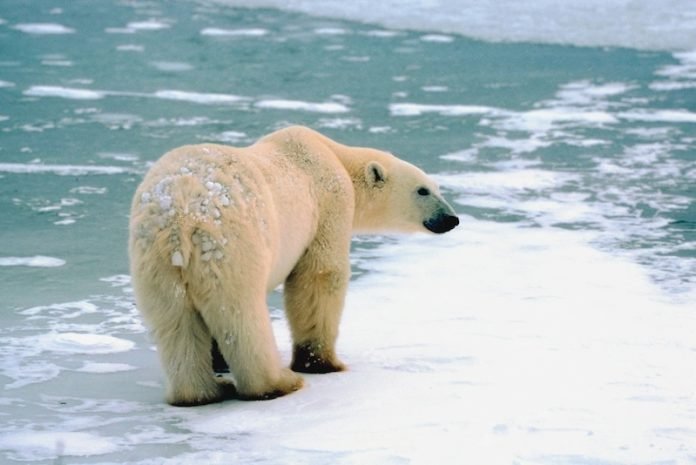
A revealing study has brought to light the stark challenges polar bears face as they spend more time on land due to the melting ice in the Arctic, a consequence of climate warming.
Over the course of three summer weeks, scientists meticulously observed 20 polar bears in the western Hudson Bay region of Manitoba, Canada, discovering that despite their efforts to adapt by resting, scavenging, and foraging, nearly all of them experienced significant weight loss.
The study, published in Nature Communications, found that on average, the polar bears lost about 1 kilogram (2.2 pounds) per day.
This weight loss occurred regardless of whether the bears were actively searching for food or conserving energy by resting, challenging the notion that polar bears could adapt to longer ice-free seasons by adopting behaviors similar to their grizzly bear relatives.
Charles Robbins, director of the Washington State University Bear Center and co-author of the study, emphasized the distinction between polar and grizzly bears.
Unlike grizzlies, polar bears depend heavily on the fat of seals, which they primarily hunt on ice.
This dietary specialization makes survival on land particularly difficult for polar bears, especially as they are significantly larger and require more energy to maintain their mass.
To gain insights into the bears’ behavior and energy expenditure when their primary food source is unavailable, researchers equipped them with collar cameras and GPS trackers.
The footage and data collected showed a wide range of behaviors, from bears resting nearly all the time to others traveling extensive distances and spending up to 40% of their time foraging on berries, kelp, grasses, and whatever carcasses they could find.
Yet, these efforts did little to mitigate their energy deficit.
Anthony Pagano, the study’s lead author and a research wildlife biologist with the U.S. Geological Survey Polar Bear Research Program, highlighted the diversity in bear behaviors and the consequent range of energy expenditures.
However, despite the variance in activity levels and the slight energetic benefit from terrestrial foods, the bears expended more energy accessing these resources than they gained.
The study also documented three polar bears that undertook long swims, with one swimming 175 kilometers (about 110 miles) across the bay.
Unfortunately, even when they encountered potential food sources like a beluga or a seal carcass in the water, they were unable to consume them while swimming or bring them back to land.
Only one bear in the study gained weight, and this was due to finding a dead marine mammal on land.
This research underscores the grim reality facing polar bears in the western Hudson Bay and potentially across the Arctic.
As climate change leads to earlier ice melt, polar bears are forced onto land sooner, reducing the crucial period they have to build up the fat reserves needed for survival.
The findings point to a bleak future, with increased starvation expected, especially among younger bears and females with cubs, as the ice-free period extends.
The research findings can be found in Nature Communications.
Copyright © 2024 Knowridge Science Report. All rights reserved.



